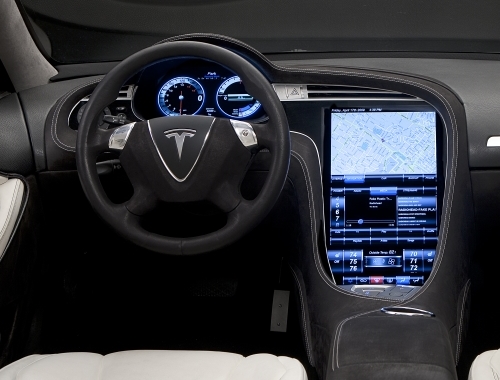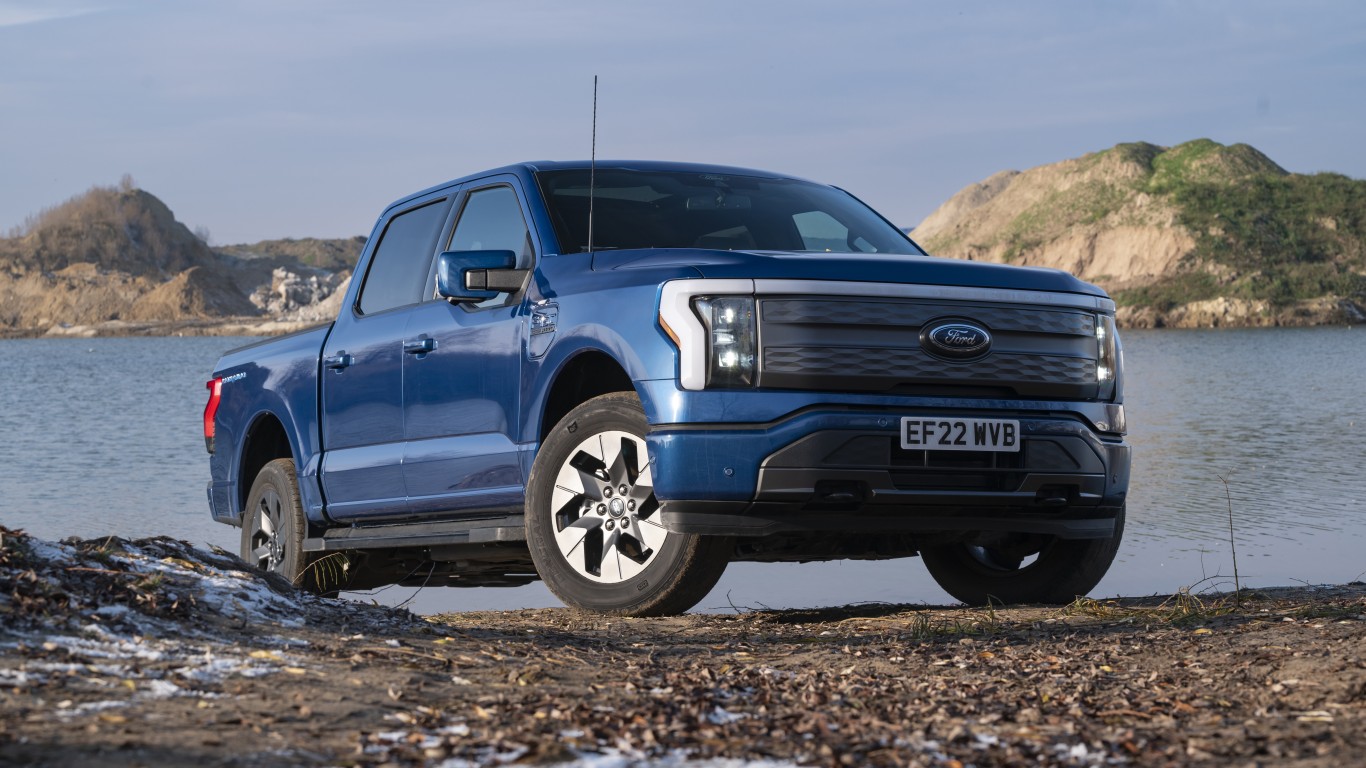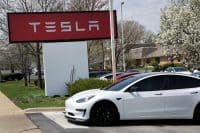Tesla Motors Inc. (NASDAQ: TSLA) is without a doubt the most exciting U.S. automobile manufacturing story of the past couple of decades. The real question to ask is how much being able to tell that story is worth. UBS issued a new research report signaling that Tesla’s fair value is already reflected in its share price.
Colin Langan, the UBS analyst who follows the company, issued a new Neutral rating. He also assigned a $230 price target, only about $10 higher than Tuesday’s closing price. Langan maintains that the disruptive business model is nearly priced into the stock.
Langan went on to note that Tesla’s share price has rallied significantly in recent months — almost 50% so far in 2014 and up almost 500% over the past year. Also, shares are up more than 1,000% since its initial public offering in 2010.
The biggest question is Tesla’s $27 billion market valuation. This is 56 times expected 2015 earnings per share, as well as more than five times expected 2015 revenues. Keep in mind that this is exponential earnings and revenue growth expected versus 2012 and 2013.
So, how does Tesla stack up against the big automakers?
Ford Motor Co. (NYSE: F) has a market cap of $60 billion. Without any souped-up growth figures, Ford trades at about 11 times this year’s earnings estimates (and only eight times expected 2015 earnings estimates). It also trades at only 0.4 times expected sales.
General Motors Co. (NYSE: GM) is worth some $55 billion, but shares have been bruised of late because of its recall snafu. GM trades at about nine times expected earnings for this year and only about 0.35 times expected sales for this year. That recall makes it difficult to peg raw numbers, but the numbers should be close enough, even with GM’s woes.
So, is Tesla fairly valued? Let’s break away from what UBS thinks and try looking at this independently. The caveat: every investor will value each component of future values differently. If you just use traditional growth investing and value investing models, the reality is that Tesla is way overvalued. That being said, everyone has said the same thing about every other disruptive technology.
Elon Musk is certainly a visionary CEO, and having him involved has to be worth a couple billion or few billion dollars in “goodwill and intangible” value alone, at least during a bull market. Then there is the Gigafactory coming down the pipe, a move that may make Tesla a true battery tech giant, on top of just being a hot electric vehicle maker. The value of this is going to be in the billions as well. Let’s assign a $5 billion value for now, since it will take years from start to finish to begin making a major difference.
Then you have to consider earnings and sales, say, four years out for just the cars. That could be worth $10 billion or so in theoretical market value. And Tesla has cash of close to $1 billion and a total book value of close to $700 million — at 25 more than 30 times book value today, we will discount the rest of Tesla to a mere 10 times book value for another $7 billion in valuation.
Add up the numbers and it should be $19 billion to $20 billion for a back of the envelope calculation of today’s terms. Again, Tesla’s market cap is about $27 billion.
Does this mean that Tesla is way overvalued in the end? Yes, if you use the current metrics. That answer is also yes if the bull market comes to a sudden end. But then again, if the bull market continues, then it is likely to be favorable to companies like Tesla and CEOs like Elon Musk. If Tesla gets valued on a 2018 to 2020 story, and if Tesla can truly get that mass market electric car to market in the next few years, then maybe it is undervalued.
We will leave the rest of the pondering up to you.
Want to Retire Early? Start Here (Sponsor)
Want retirement to come a few years earlier than you’d planned? Or are you ready to retire now, but want an extra set of eyes on your finances?
Now you can speak with up to 3 financial experts in your area for FREE. By simply clicking here you can begin to match with financial professionals who can help you build your plan to retire early. And the best part? The first conversation with them is free.
Click here to match with up to 3 financial pros who would be excited to help you make financial decisions.
Thank you for reading! Have some feedback for us?
Contact the 24/7 Wall St. editorial team.



